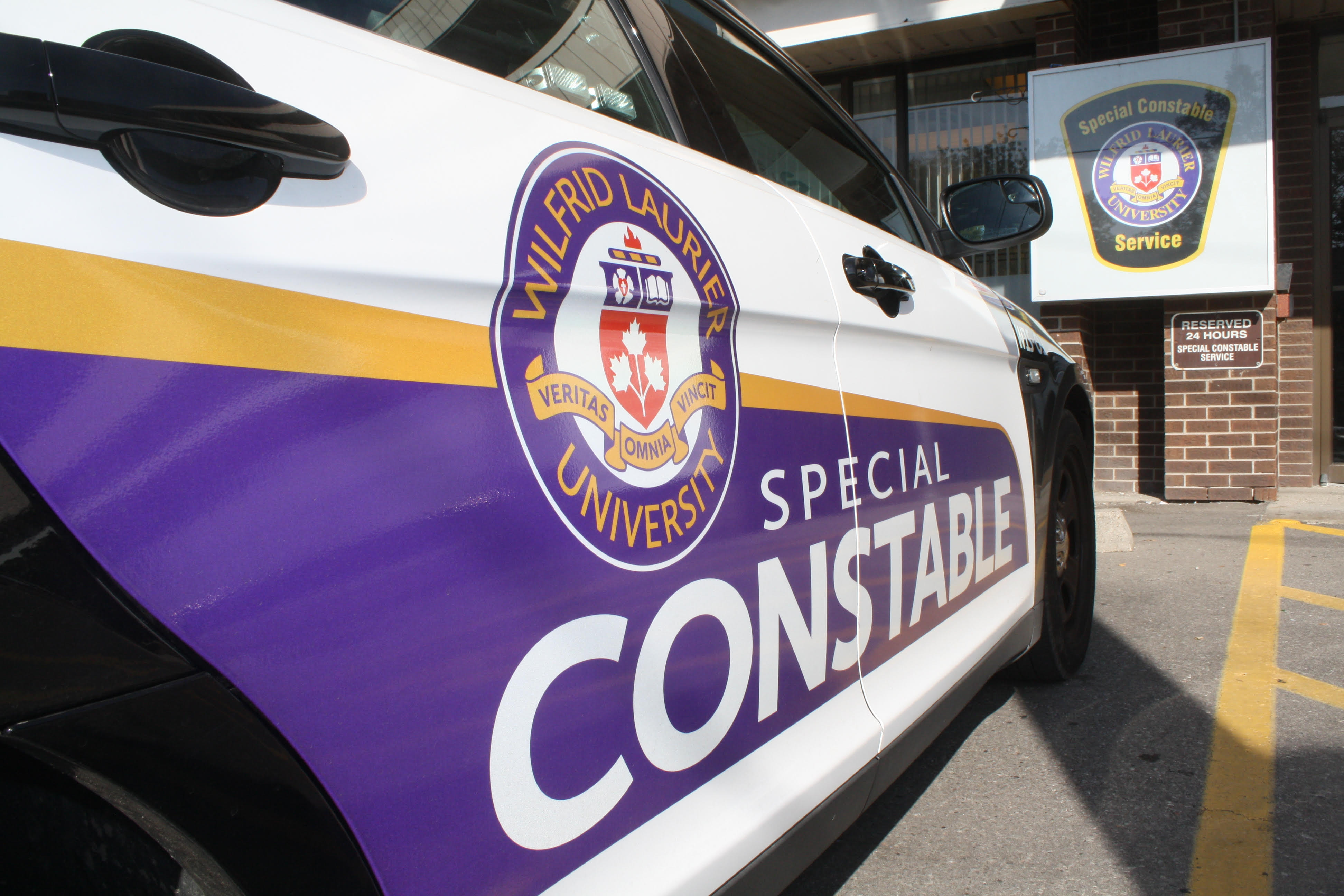Confusion over special constables accreditation sparks student controversy

This week, Laurier’s Special Constable Service (SCS) received backlash over confusion regarding the pursuit of an “elite accreditation process,” stemming from a concern that Special Constables would be given the authority to possess lethal and non-lethal firearms, as well as search and detain students.
This concern gained recognition when the Twitter account “Spotted At Laurier” released a tweet indicating that “Laurier is moving towards arming Special Constables and allowing them to use deadly force if deemed necessary, if you feel that this isn’t okay, please use the info below to call and voice your feelings.”
On Nov. 1, Laurier released an official statement confirming that the SCS was “scheduled for an initial on-site assessment at the Waterloo campus by an accreditation team from the International Association of Campus Law Enforcement Administrators (IACLEA).”
On the IACLEA’s website, the organization notes that process for accreditation “signifies an agency’s ongoing commitment to excellent, state-of-the-art performance in every aspect of its operations. Accredited agencies demonstrate to their personnel, the campus community and outside experts their professionalism and mission focus.”
Included in Laurier’s assessment was to determine the SCS’ level of compliance with IACLEA standards. The majority of complaints came from the sections of the accreditation standards guide labelled “use of force” and “detainee processing and transportation,” which suggested that SCS would be given certain legal authorities if provided with this level of certification.
The primary reason for pursuing the accreditation is to enhance the professionalism, accountability and transparency of the Special Constable Service. It is not about seeking greater powers.
– Kevin Crowley, director of communications and public affairs for Laurier
In the “Use of Force” section, the subsection “Use of Deadly Force” indicated that “if the agency authorizes the use of lethal weapons, it has a written directive that officers may use deadly force only under a reasonable belief that the action is in defence of human life or in defense of any person in imminent danger…”
The “Detainee Processing” subsection of the document discussed that “those agencies with custodial arrest authority may need to temporarily hold a detainee while certain processes are completed …,” giving reason to students to suggest that SCS would be given the ability to detain students.
On Nov. 8, Laurier released an official clarification of this process and designation.
Confirming that this was a significant concern, the statement read that “the university wishes to emphasize that Laurier’s Special Constable Service is not seeking to carry or employ weapons of any kind. The university must abide by provincial and federal laws regarding firearms, and these laws do not permit special constables to carry such weapons.”
Instead, the goal of accreditation was designed to improve the quality of the professionalism, accountability and competency that SCS members demonstrated on a daily basis.
This process involves consultation with, and feedback from, the Laurier stakeholders — which include students, faculty and staff. The university also recognized that, due to these miscommunications, it became clear that “we need to provide more context and more opportunity for dialogue and feedback.”
Furthermore, Kevin Crowley, director of communications and public affairs for Laurier, issued a formal statement regarding an update on the matter of Laurier SCS accreditation.
“Wilfrid Laurier University acknowledges the questions and concerns raised about a professional accreditation designation that Laurier’s Special Constable Service has been working toward,” the statement read.
“The primary reason for pursuing the accreditation is to enhance the professionalism, accountability and transparency of the Special Constable Service. It is not about seeking greater powers.”
“It is clear, however, that more consultation and communication are required. For this reason, the university has suspended Laurier’s involvement in the accreditation process to allow time for additional discussion and feedback.”
“The university will provide further information once we have had the opportunity to reflect and develop next steps,” the statement concluded.


